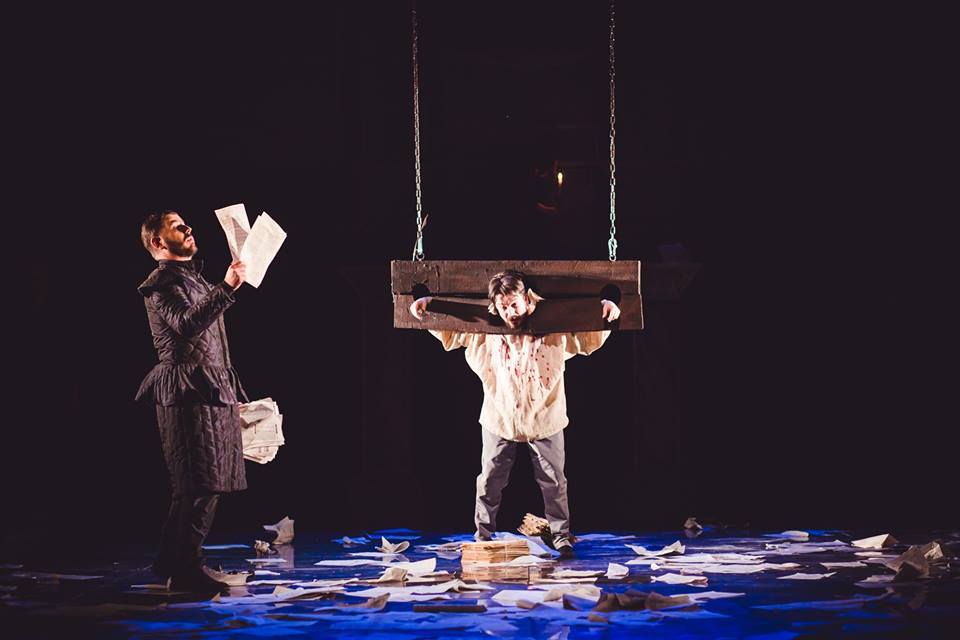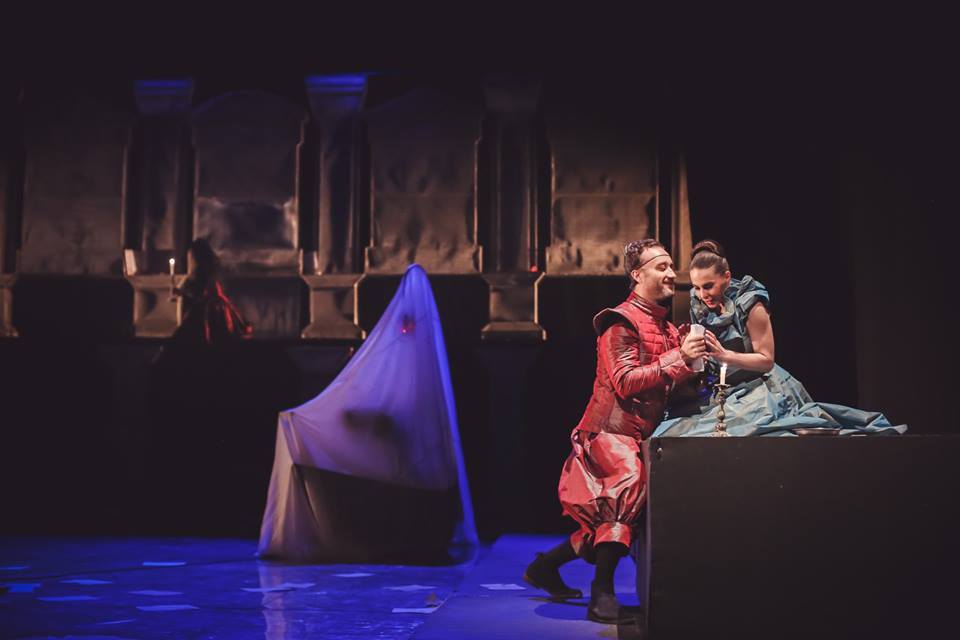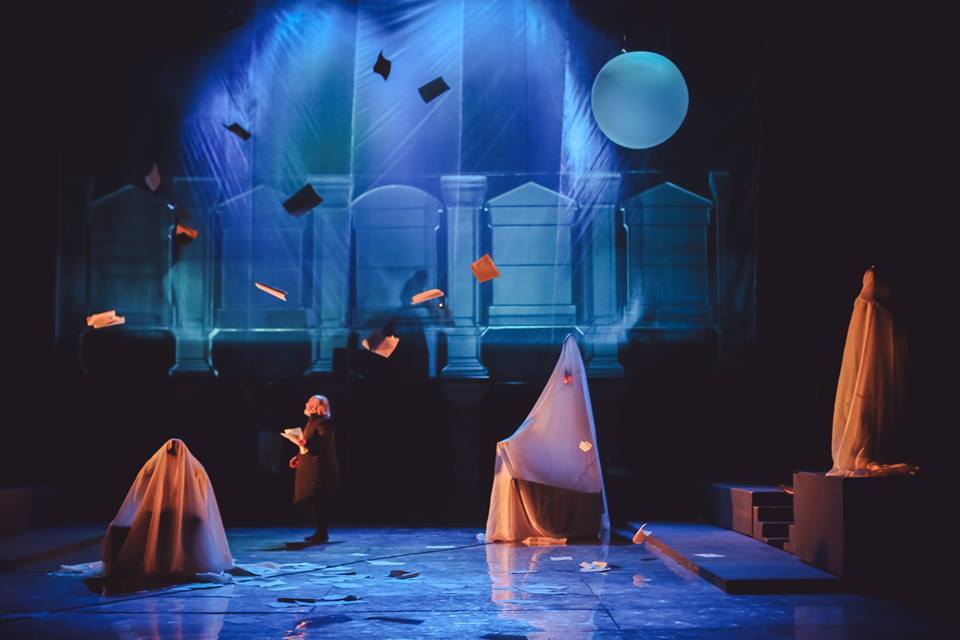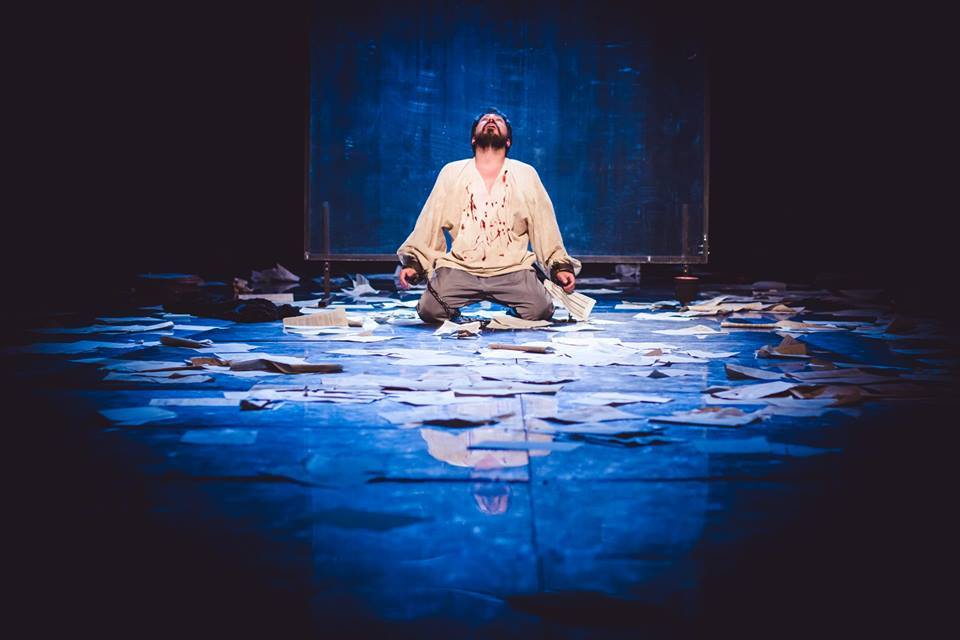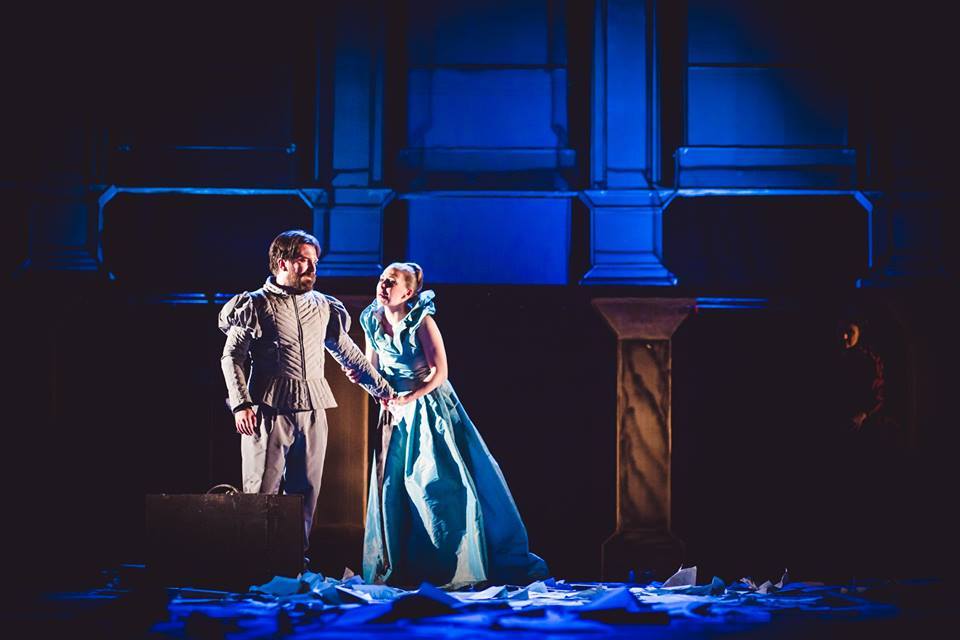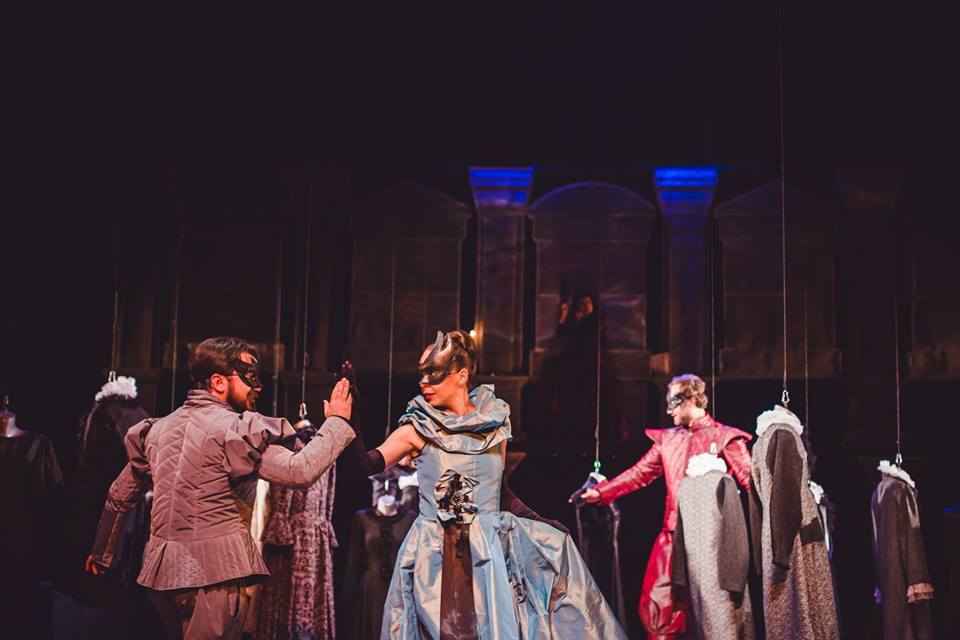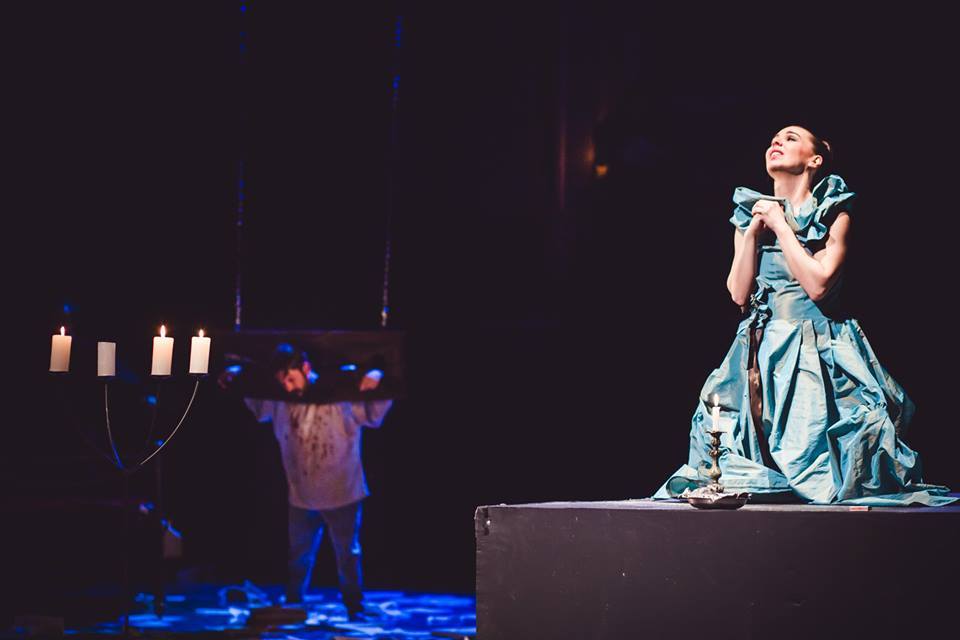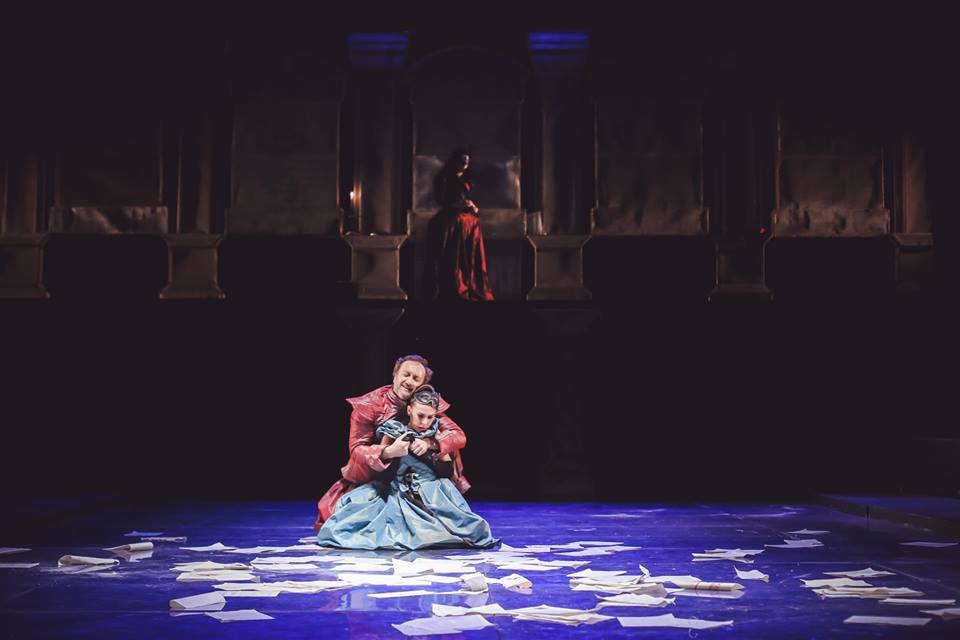SONNETS
of Angelcho Ilievski
William Shakespeare
Translation: Dear Mihajlovskis
Direction and dramatization: Angelcho Ilievski
Playwright: Biljana Krajchevska
Scenographer: Valentin Svetozarev
Costume design: Blagoj Micevski
Composer: Daria Andonovska
Choreography: Jagoda Dimovska
Inspector: Dimitar Mihajlovski
Caper: Zorka Djakovska
Light: Ilija Dimovski, Igor Micevski
Sound master: Nikolce Terzievski
Photography: Kosta Dupchinov
Premiere: 18.04.2016
Roles:
The poet: Petar Mircevski
The young boy: Filip Mircevski
The Black Lady: Gabriela Petrushevska
The young lady: Victoria Stepanovska – Jankulovska
The rival poet: Fiery Drangovski
The inspector: Ivan Jerchich
Working on a text by William Shakespeare is both a challenge and a pleasure, but when it comes to his Sonnets, it is much more than both a challenge and a pleasure, it's like exploring the cosmos, to create a cosmos, to discover a world between worlds, to penetrate into the most intimate parts of both the author and himself. An ocean of emotions, conditions, yearnings, under, pains, good luck… love. A huge challenge for me was to first create a clear story, with clear and strong characters and the development of their relationships and all of this becomes clear only through the Sonnets, without any written words, and further, in my own personal way, to translate the same on stage - in a magical world, mystical world, a world with a different logic, when the consciousness mixes with the subconscious and what happens when there is chaos in the thoughts and in that chaos of thoughts to create some order. Lots of inner voices, voices that cannot be stopped, voices that animate and kill, voices that make one fall asleep and that kill sleep. The story is told through the characters of the Poet and the Black Lady. Through their memories, animal situations, sick topics, until their final union - eternity. In the play, a line is also drawn to the external most terrible voice, the government, which cannot remain calm with the creation of the Poet who speaks great truths. The question is how she recognizes her and whether she recognizes her. This line is not the most important in the play, but it is placed in a context that raises questions, very important for an artist. However, the play is our personal strong cry for sincere love, love in the broadest sense of the word, which means to love someone unconditionally, to wait forever, to talk about the missed moments, for the mistakes made, about the scars we carry in life, about how willing we are to make big and important decisions, about how much we sin and how willing we are to forgive. A series of questions and many answers. This play is very important to me, for without any hesitation it opens up the most intimate and basic human emotions and states in this so vile, disgusting, hypocritical, duplicitous time and just wants to remind and talk about some sincere feelings that we started to forget a long time ago, as we began to forget ourselves...
Angelcho Ilievski, director
Shakespeare is a poet in drama and a playwright in poetry.
Shakespeare's Sonnets, 154 of the number printed in 1609, give us the opportunity to dive into his poetic and dramatic strong contemporary vision of the contemplation of eternal love, about the meaning of life, about beauty, the loneliness, for longing.
Thus, each of his sonnets is a short monologue that contains a strong internal conflict, on topics that are still intriguing today.
tni (the question of human identity, the questioning of interpersonal relations, the existence of moral and spiritual values here and now, etc.)
Perhaps this complexity and openness to their interpretation is one of the initial ideas of the young director Angelcho Ilievski to put them on stage. (for the first time here in Macedonia) as a complete play "Sonnets", at the same time as his author's dramatic text whose dramatization is based only on the collage of 30 Shakespeare's sonnets including two poems by Christopher Marlowe. Hence the six dramatic characters are exhausted (The Young Boy, The Young Lady later the Poet and the Black Lady, then the character of the Rival Poet and the Inspector) which in dramatic time (intertwined from the present and the past) they play life, a life that cannot end, a life missed or rather trapped in waiting, that is, from the perspective of the Poet, it is a life that serves only to touch something that is a memory. Intercepted by the "love drama" of passionate poetic creation, the inexhaustible friendship, the discord of the muse of love embodied, events are lined up that create strong visual compositions with specific actor communication. At first, here one can recognize a story about the rivalry between the genius of William Shakespeare and that of Christopher Marlowe, but that's only part of the layers that loom, for the sake of a drama that tries to present the forgotten today, and such simple human values/virtues/love that they disappear forever removed from emotional or rational reasoning, something that can receive its full meaning of love only in the Eschaton.
Biljana Krajchevska, playwright


